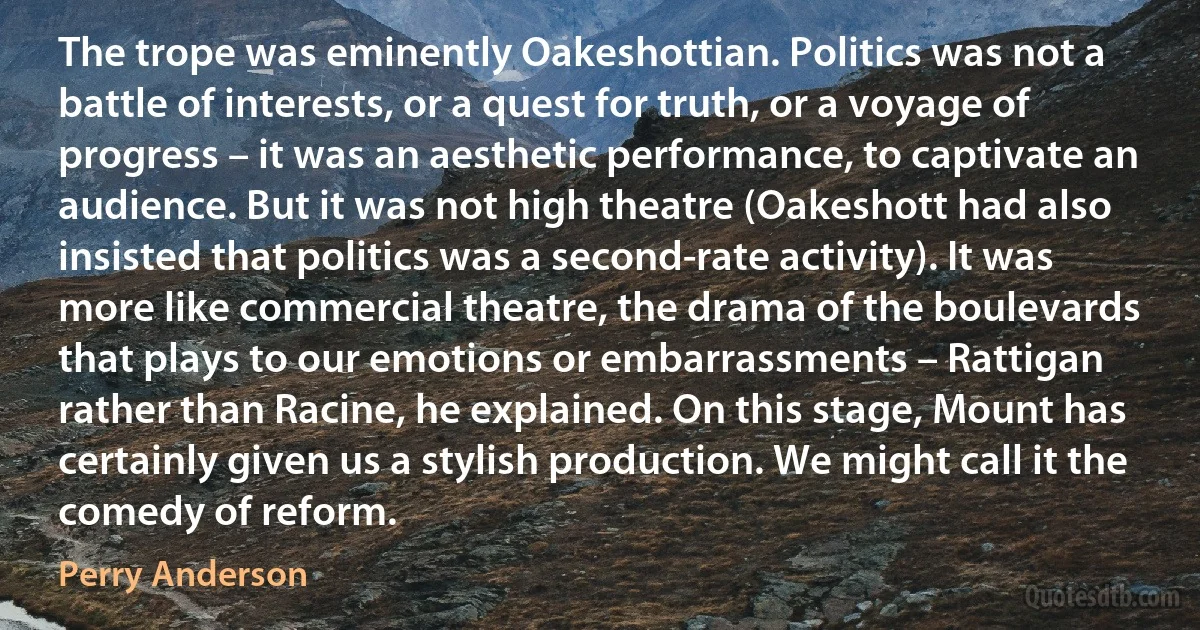
The trope was eminently Oakeshottian. Politics was not a battle of interests, or a quest for truth, or a voyage of progress – it was an aesthetic performance, to captivate an audience. But it was not high theatre (Oakeshott had also insisted that politics was a second-rate activity). It was more like commercial theatre, the drama of the boulevards that plays to our emotions or embarrassments – Rattigan rather than Racine, he explained. On this stage, Mount has certainly given us a stylish production. We might call it the comedy of reform.
Perry AndersonRelated topics
aesthetic battle call commercial drama given high might politics production second-rate truth racineRelated quotes
Her strong sense that neither she nor any human being deserved less than was given, did not blind her to the fact that there were others receiving less who had deserved much more. And in being forced to class herself among the fortunate she did not cease to wonder at the persistence of the unforeseen, when the one to whom such unbroken tranquility had been accorded in the adult stage was she whose youth had seemed to teach that happiness was but the occasional episode in a general drama of pain.

Thomas Hardy
The politics of the unpolitical-these are the politics of those who desire to be pure in heart: the politics of men without personal ambition; of those who have not desires wealth or an unequal share of worldly possessions; of those who have always striven, whatever their race or condition, for human values and not for national or sectional interests. For our Western world, Christ is the supreme example of this unselfish devotion to the good of humanity, and the Sermon on the Mount is the source of all the politics of the unpolitical.

Herbert Read
It just seems like the most successful, iconic love stories are not so easy or escapist. I think the ones that stay with us and resonate are full of conflict, discord and misunderstandings 'cause that's what makes drama happen or tension even if it's a comedy. I think people who make movies and have invested a lot of money in them, get frightened that if they challenge an audience they are going to repel them. And I think the opposite, it's really true. It takes confidence and courage to know that and then commit to it.

Claire Danes
Our only crime consisted of decreeing our own laws and applying them to all without exception. Our crime is having enacted an agrarian reform which effected the interests of the United Fruit Company. Our crime is wanting to have our own route to the Atlantic, our own electric power and our own docks and ports. Our crime is our patriotic wish to advance, to progress, to win economic independence to match our political independence. We are condemned because we have given our peasant population land and rights.

Jacobo Arbenz Guzmán
Men call women faithless, changeable, and though they say it in jealousy of their own ever-threatened sexual honor, there is some truth in it. We can change our life, our being; no matter what our will is, we are changed. As the moon changes yet is one, so we are virgin, wife, mother, grandmother. For all their restlessness, men are who they are; once they put on the man's toga they will not change again; so they make a virtue of that rigidity and resist whatever might soften it and set them free.

Ursula K. Le Guin
